Michael Jackson
XSCAPE: Reviewing the Reviews & Analysing the Clues Regarding the New Michael Jackson Album
Published
10 years agoon
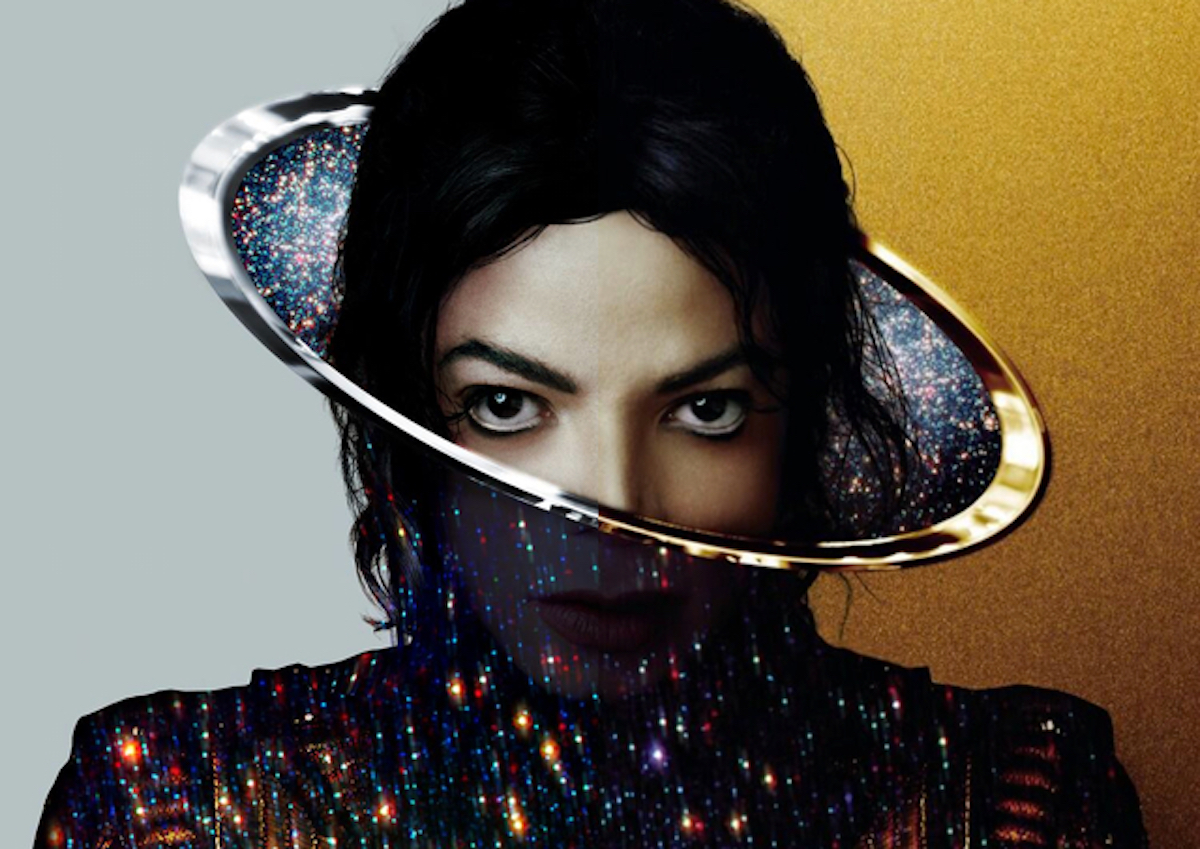
Reviews of the new Michael Jackson album Xscape have begun emerging online today following a secret playback session hosted by BBC Radio’s DJ Trevor Nelson in the downstairs area of a posh West London hotel.
Although the album’s track list has not yet been officially announced by The Estate of Michael Jackson or Epic Records, music journalists who were privileged enough to have attended the playback session have since reviewed the set.
As I have not yet heard all of the new album’s new remixes, I will draw on the comments of the journalists who have. I will also drawn on details featured in a series of articles previously published here at damienshields.com to give a little bit of background information on some of the tracks and their origins.
Additionally, I’ll give my two cents on the choice of cover-art used to promote the album, Sony’s marketing campaign, and the reception among Jackson’s loyal fan base.
I’ll kick it off with a song-by-song review in order of appearance, as best derived from the comments given by those who heard the album at the playback session. Trying to figure out the order was no mean feat; the journalists in attendance were not informed of the song titles, and as a result some contradictory recollections have occurred regarding the recordings. I’m still not 100% confident that I’ve got the order correct, but I’ve given it a decent crack.
1. Love Never Felt So Good
“Love Never Felt So Good” originates from collaborative sessions Jackson held with legendary songwriter Paul Anka in 1980.
Touted by Mirror reporter Kevin Hughes as “an amazing disco groove” with a “soulful vocal, infectious baseline and orchestral strings,” this track would apparently not sound out of place on a Pharrell album. Lewis Corner of Digital Spy says that the track comes complete with 1980s “disco beats and crisp finger clicks,” adding that “the groove of the track is soaked in nostalgia.” The finger snaps are all present on the original demo of the track, but a 1980s disco beat is not. In fact, the demo, which will appear in the Deluxe Edition of Xscape, has only one instrument; a piano.
This remix will certainly be an interesting listen.
2. She Was Loving Me (a.k.a. Chicago)
“She Was Loving Me” is an ‘Invincible’ era track written and produced by Cory Rooney. Jackson recorded his vocals at The Hit Factory in New York in late-March of 1999.
“The second song – possibly called ‘Chicago’ and cited by Timbaland as a future single – falls into the former camp, with Jackson utilising a harder vocal delivery that’s encased in a big industrial melange of jackhammer beats,” recalls The Guardian journalist Michael Cragg. “Jackson practically gave birth to the genre ‘dirty-pop’, and track two throws back to that period when you wouldn’t see him on stage without bolshy bass and hip-pop beats, ‘She lied to you/ She lied to me,’ he proclaims in his trademark growl,” adds Lewis Corner.
This, indeed, is the track that Timbaland referred to as “Chicago” in an interview with Revolt TV last year – touting it as his pick for the album’s lead single. The title “Chicago” has caused some confusion among fans, including myself, which I address here.
Kevin Hughes reported that the: “RnB soaked ‘She Was Loving Me’ (originally considered for the 2001 Invincible album) has echoes of ‘The Way You Make Me Feel.'” Hughes is not the only journalist to cite a similarity to Jackson’s 1987 hit, with The Telegraph’s Bernadette McNulty stating that: “When one of the songs directly recalls the bassline from ‘The Way You Make Me Feel’ it seems like a step too far.” Whether or not McNulty is referring to “She Was Loving Me” – or another song altogether – is not specified in her report.
“She Was Loving Me” is one of two tracks on the album that have not leaked publicly (the other title remains unknown) meaning, unlike the other six tracks on the album, fans have never heard it. I, however, was lucky enough to have listened to the track last year during preparations for an article I wrote and released for Michael’s fans on what would have been his 55th birthday (August 29, 2013). What I find interesting about the brief reviews of this track in particular, are the comparisons to “The Way You Make Me Feel”. I can tell you right now, the original version of “She Was Loving Me” sounds absolutely nothing like “The Way You Make Me Feel.” If anything, it reminded me of elements present in “Morphine,” “D.S.,” and “Another Day”. Rooney himself draws this comparison: “The song goes from him singing really low in the verses to singing really high in the choruses, so it’s two different types of vocals. It’s like Michael Jackson’s ‘Billie Jean’ voice and his ‘Dirty Diana’ voice in one record.”
Jackson delivers an emotionally powerful vocal on the track, packed with pain and frustration. The verses gently tell the intimate story of Jackson’s encounter with a woman whom he believes was attracted to him, before unleashing a rage of guitar-infused fury in the choruses.
“I met her on the way to Chicago, where she was all alone, and so was I so I asker her for her name. She smiled and looked at me, I was surprised to see, that a woman like that was really into me,” sings Jackson in the first verse, before things take a turn for the worse in the second.
3. Loving You
“Loving You” was originally written and recorded by Michael Jackson in the mid-80s, before the Bad album, and was mixed by Matt Forger at Jackson’s Hayvenhurst home studio.
“The third song played is another Off the Wallesque, mid-paced love song with a youthful, almost naive-sounding vocal. It feels very much like a song that didn’t make it on to an old album, and while the production is good – there’s an amazing rolling beat throughout – it still feels slight,” reported journalist Michael Cragg after attending a listening session in the UK, while Lewis Corner, also at that session, described it as a flowing ’80s-tinged serenade with orchestral bursts and choral harmonies. A critic who heard the track during the Paris listening session likened the song to “Liberian Girl” and described it as being a nostalgic track with a minimalist-type production and whirling synths. Another attendee of that same Paris listening session told me that the track was a smooth mid-tempo love song about a girl. He said it has an RnB feel, “Reminiscent of the ‘Off The Wall’ approach Jackson and producer Rodney Jerkins had developed on ‘Invincible’ for songs like ‘You Rock My World’,” adding that: ”It has a slight ‘The Jacksons’ feel; like in their ‘Triumph’ days.”
“I remember it as an RnB style, mid-tempo love song,” recalls Matt Forger, which matches perfectly with the descriptions of journalists and fans who’ve heard it (see above). “It was a good song, just not in serious consideration for the Bad album. One of many that were recorded and put away.”
Because this is the only track on the album that I have not heard, it’s naturally the one of those I’m most curious about. Click here to read more about the track.
4. A Place With No Name
“A Place With No Name” is a track written by Elliot Straite, aka Dr. Freeze. It is a lyrically re-written cover of the 1972 hit “A Horse With No Name” by the band America. Jackson recorded his vocals at Record Plant Recording Studios in September 1998.
“I challenge anyone not to experience goosebumps after hearing ‘A Place With No Name’,” reported Kevin Hughes, adding that the song deserves to played by radio stations worldwide.
One thing that can’t be denied about this track is Jackson’s vocal. “When he came into the studio to record, he stood before the microphone and set fire to the song,” recalls Dr. Freeze of the recording session. “As he left, the studio was in ashes and our jaws on the floor. It was really impressive to see.”
5. Do You Know Where Your Children Are
This track could be titled one of two things: a) “12 O’Clock” or b) “Do You Know Where Your Children Are”. The latter is the authentic title of the song, as cited by Jackson in a 1993 court deposition. The track was initially believed to have been recorded during the Dangerous album sessions, but was in fact recorded during the mid-80s – in the lead up to the Bad sessions.
All reports so far have cited this one at the album’s peak. “The fifth song we were played opens with computerized synths as the star’s iconic ad libs of ‘hee-hee’ and ‘aaaow’ smack you with excitement,” writes Lewis Corner, adding: “Echoed snare beats and a storming rawk guitar solo make it one of the stand-out tracks. It’s: “One of the outstanding cuts on the ‘Xscape’ album,” agrees Kevin Hughes. “An emphatic Jackson discusses family values and child abuse over a pulsating bass line and guitar riff.” Michael Cragg called the track “a proper, undeniably amazing hit” before going into a little more detail. “Opening with a delicate flurry of cascading 80s synths, it feels like the perfect embodiment of the old and the new, with some vintage “hee hee” ad-libs peppering the sophisticated mesh of electronics. It also features a typical Jackson pre-chorus section that then opens out into the album’s best chorus, before a great false stop moment heralds an even more bonkers final third, with Jackson hee-heeing and ow-ing his head off.”
While I can deal with the possibility of Epic Records opting to change the actual title of this song from “Do You Know Where Your Children Are” to “12 O’Clock” for the sake of avoiding the potential criticism and narrow-minded controversy the lengthy original may cause, there is one thing I hope they don’t mess with; the lyrics Jackson delivers vocally on the track.
First of all, before I explain what I mean, let me put this into context: To me, Michael Jackson is a real life superhero. Not only did he moonwalk, morph into black panthers, zombies, robots and cars, and fly off the edge of the stage, out over the audience using a jetpack at the end of his Dangerous World Tour concerts, but he, like all great superheroes, actually wanted to save the world and the people in it. This was just who he was. Katherine Jackson, Michael’s mother, remembers Michael as a little boy seeing the starving children in Africa on television with flies around their mouths. “One day I’m gonna do something about that,” he’d tell her. And he did. He raised hundreds of millions of dollars for dozens of charities around the world. Michael Jackson truly cared for humanity. He cared for people of all cultures, races, ages and walks of life. He cared for equality and human rights. This is evidenced in his songs, such as “Heal The World,” “Earth Song,” “Man In The Mirror,” and “Why You Wanna Trip On Me.” He was so often the voice of the voiceless; take “The Lost Children” or “They Don’t Care About Us” for example.
Now, “Do You Know Where Your Children Are” discusses child abuse. In the song, Jackson sings about a girl who has run away from home, leaving behind a letter to her mother: “She wrote that she was tired of step-daddy using her. Saying that he’ll buy her things while sexually abusing her.” The song then follows the girl to Hollywood, where she winds up letting her hair down and “selling her body hard” under the guidance of a man she met at the train station. In the choruses, Jackson asks the listener: “Do do you know where your children are? Because it’s now twelve-o’clock, and they’re somewhere out on the streets. Just imagine how scared they are!” At the end of the third and final verse Jackson chillingly proceeds to put the entire debacle into perspective, revealing the girl’s doomed fate by singing that the police were: “Arresting this little girl that’s only twelve-years old!”
The reason I am concerned about the censoring of Jackson’s lyrics stems from the last posthumous album Epic Records and The Estate released – 2010’s Michael album. On that album there is a song called “Hollywood Tonight” – a similar theme to “Do You Know Where Your Children Are” – about a girl who has left home and gone to Hollywood. Jackson had been working on “Hollywood Tonight” for a decade, carefully tweaking and perfecting the music while working on the lyrics. He had laid down vocals for two verses and the choruses prior to his death, with a sketch of the bridge and partial third verse as well. One thing is clear; he had a specific vision to tell the untold, tragic story of childhood runaways. In the second verse, Jackson sings: “Westbound Greyhound to Tinsel Town just to pursue her moviestar dreams. She’s giving hot tricks to men, just to get in. She’s taught that that’s not clean, because she’s only fifteen.” However, the words: “because she’s only fifteen” were removed by producer Teddy Riley and replaced with a line from the first verse: “She’s headed for the big sign that means.” This takes the context away from the song completely. This is the moment the seriousness of the matter becomes apparent.
So, back to the positives. The journalists who heard “Do You Know Where Your Children Are” have called it the album’s highlight and a potential radio hit. I hope the song, which is one of my all-time favourite Jackson tracks, is released as a single. I also hope that the remix stays true to Jackson’s vision and message.
6. Slave To The Rhythm
“Slave To The Rhythm” was written by L.A. Reid and Babyface and recorded by Jackson during the Dangerous album sessions. The track has since appeared online in a number of forms; once in 2010 – remixed by Tricky Stewart, once in 2013 – remixed by Max Methods and featuring Justin Bieber, and now as part of the Sony Xperia Z2 / Xscape album cross-promotional commercial series – remixed by Timbaland.
“Track number six – which we identified as ‘Slave to the Rhythm’ – begins with a massive string-led swoosh of scenic proportions, before it completely drops into glitchy electronics and rattling beats. Its shuffling groove marks it as classic MJ, making it yet another highlight,” wrote Lewis Corner. Michael Cragg reported that the Timbaland remix features: “Lashings of beatboxing in the intro, loads of vocal tics throughout, big spidery bassline,” adding that, “as with some of his other songs on Xscape, barely any space for the song to breathe. Thankfully Slave to the Rhythm is strong enough to fight its way through the clutter.” Kevin Hughes labeled the track as a potential single and “floor-filler for a new generation.” All journalists were pleased to announce that Justin Bieber does not feature on this version.
To hear a 30-second sample of Timbaland’s brand new remix of “Slave To The Rhythm” and see L.A. Reid in the studio, bopping along while pimping the new Sony Xperia Z2 mobile phone, check out the below video:
Some background info on how Justin Bieber came to be on the track back in 2013: Tricky Stewart, who had previously remixed the track in 2010 to be considered for the Michael album, got Justin Bieber to record the track. Stewart was, at the time, the President of A&R at Epic Records, working under L.A. Reid (who wrote the track). He then gave Jackson’s existing vocal and Bieber’s brand new vocal to a DJ signed to his Red Zone Ent record label, Max Methods, and asked him to re-produce the track. On August 16, 2013 it leaked via SoundCloud and YouTube. Click here to read more about that fiasco.
7. Blue Gangsta
“Blue Gangsta” is another track written by Dr. Freeze. The track was recorded during the same sessions as Freeze’s other track – “A Place With No Name” – in late 1998.
Reviews of this track have been mixed. “Song number seven – which might be called ‘Blue Gangsta’ – opens with Bond Theme-styled strings and tinned beats, before hearing Michael complain: ‘Look what you’ve done to me/ I can no longer smile'” writes Lewis Corner, adding that the album’s “overarching narrative is what we’ve always loved about Jackson; the superstar who is unlucky in love, but never doubts its power.” As cited in my “Chicago” segment, Kevin Hughes reported that “Blue Gangster” (and “Chicago”) will: “Remind you of previous Jackson offerings but both tracks benefit from newly enhanced production and remind us of the fact that Michael was keen to remain relevant to the emerging hip-hop generation.” Michael Cragg was less than impressed with the song, stating that it was: “The album’s only true lowpoint,” that “feels like about three different songs fighting for attention.”
“For ‘Blue Gangsta’ I wanted to make a new ‘Smooth Criminal,'” recalls Dr. Freeze of his inspiration when writing the track. “Something more modern and rooted in the 2000s.” The track was considered for the 2010 Michael album but was ultimately not selected. Freeze stated that the version that leaked online is not the newest version he has. “I’ve updated it a bit, the song is completed, ready to go. It will be completely different from the version leaked on the net. It is perfectly calibrated to enter a nightclub. It sounds very European in style productions Kraftwerk.”
The version that will appear on Xscape will be different yet again. Freeze was not involved in the production of the new remix.
8. Xscape
“Xscape” is a track co-written by Fred Jerkins III, Rodney Jerkins, and LaShawn Daniels, produced by Rodney Jerkins, and recorded by Michael Jackson during the Invincible sessions.
“It’s the only track which has been re-worked by its original producer, and hears turn-of-the-millennium Jackson snarl over a mix of ’70s disco and ’90s R&B. Its potential for some other-worldly choreography is palpable, which provokes a sad tinge of what could’ve been,” reports Lewis Corner, while Michael Cragg states that: “The only song that sounds like a bit of a struggle vocally, with Jackson’s various vocal tics becoming a bit of a hindrance rather than something more carefree.” Kevin Hughes deduces: “As the album concludes with title track ‘Xscape’ a sonic slice of noughties electro-pop, I’m left satisfied that Michael’s legacy will endure…”
Check out a 15-second snippet of the brand new Rodney Jerkins remix of “Xscape” below:
Many of Jackson’s collaborators believed that “Xscape” was one of the strongest tracks on offer during the Invincible sessions. Few could believe that it was never released, along with another Jerkins production called “We’ve Had Enough” (which eventually came out on 2004’s The Ultimate Collection). Unfortunately, in late 2002 “Xscape” leaked on the internet. Although Jackson, at that time, still had plans to utilize the track, the leak caused the cancellation of those plans. Still, those involved have fond memories of the creative process. “God is good,” said LaShawn Daniels.
“I had the opportunity to work with and befriend the greatest artist of all time MICHAEL JACKSON … on the last studio album he recorded while he was alive. I wrote the title track ‘INVINCIBLE’, which became the album title, as well as ‘You Rock My World’ which was his first single ALONG WITH 6 other songs on that album. Now years after his death I am fortunate enough to be apart of another one of his albums with an original song never heard before that I co-wrote. This song serves as the album title as well as first single; XSCAPE. Although I’m sad because he’s not here to see the world respond to this great song and body of work, I am extremely proud to be apart of his legacy and record shattering career,” continues Daniels. “I remember singing on the demo for ‘Xscape’ after writing it,” recalls Fred Jerkins III. Now, finally, “Xscape” will have it’s moment to shine – more than a decade after fans heard it for the first time – with this commanding new remix. “What a blessing to have the title track,” adds Fred.
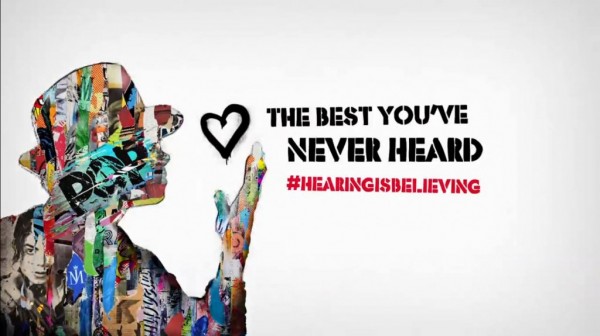
One of the slogans being used to promote the new album is “The best you’ve never heard”. This refers, obviously, to the album including the best songs that the public has not yet heard. While many of Jackson’s most dedicated fans have heard up to six of the eight tracks on this album, they must consider that the “best you’ve never heard” slogan is not targeted at them.
The real target audience here are the millions of casual MJ fans around the world. People who like his work and will take an interest if the music sounds good. Hence L.A. Reid’s wise decision to use the BEST they’ve never heard, as opposed to the “rarest MJ’s very small, hardcore, online fan base has never heard” (which would, at this point, comprise of mostly incomplete demos and sketches due to the lack of complete, unleaked resources).
Judging by the general consensus of the journalists who attended the exclusive playback session yesterday, this decision has paid off. Many of the reviews feature overwhelming praise of the compilation.
“Xscape feels like an album created to showcase a handful of Jackson songs that on the whole deserve to be heard,” writes Michael Cragg. “You get the immediate sense that a lot of time (and money) has been spent on these songs and that care’s been taken to show the songs off in the best light possible. While some of them are very obviously album tracks at best, there are flashes of genius that haven’t been diluted or watered down. In fact, Xscape manages to bring most of them to life.”
Xscape at least sounds more like a labour of love and with only eight songs, a judiciously edited and cohesive album rather than an endless memory-stick jumble of offcuts. Former American X-Factor judge L.A. Reid has overseen the process, working his way through four decades of unused recordings that Jackson has left behind. Employing a premier league team of top name pop producers, Reid has called the reboot ‘contemporizing’ Jackson’s songs,” writes Bernadette McNulty. “But the balance often feels quite subtle and even-handed between the original song and the new styles of orchestration and production.”
“From fashionable-again orchestral disco and propulsively lithe electro to Rodney Jerkin’s trademark militarised beats, you can still hear fully-formed Jackson songs there – even more striking in an age where RnB and pop has largely become a collage of chants and breakdowns. I just haven’t hadn’t heard this many words in a pop song for ages, let alone proper verses, bridges and choruses.”
“I’m left satisfied that Michael’s legacy will endure thanks to a collection of carefully selected material, lovingly re-engineered for millions of fans and new fans alike,” concludes Kevin Hughes. “There’s a reason he was called The King of Pop after all.”
He’s certainly the King of Pop, but also the King of Hype. Sony Music plans on honoring Jackson with an all-out marketing blitz that will ensure no eardrum goes without hearing their latest Jackson offering – be it voluntarily or forcefully.
“In conjunction with the release of Xscape, Epic / Sony Music will launch an unprecedented global campaign with the One Sony sister companies, Sony Corporation, Sony Mobile Communications, and Sony Network Entertainment International drawing from all of Sony’s strengths and consumer reach,” reads the official announcement on michaeljackson.com
We’ve already seen traces of their marketing, from the Sony Xperia Z2 (look at me continually promoting it without meaning/wanting to) mobile phone which will come equipped for a FREE download of the full Xscape album, stickers and posters around major cities, and now even giant billboards (including one in Times Square, NYC – see below).


While we’re looking at the billboard, I’ll quickly make a comment on Epic’s choice of album cover-art (see top of article). I like it personally, but I can see why others don’t. Art, like music, is based on personal taste. Some will like it and some won’t. Simple. It’s impossible to please everyone and that’s just the way it is.
Is “Hot Fun” the bonus track?
OK, so let’s get to the issue of that sneaky bonus track The Estate and Epic Records seem to have sprung on fans. When viewing the Xscape Deluxe Edition on iTunes, now available for pre-order, you can see that there are 17 tracks listed. Assuming that the eight remixes detailed above are the eight tracks that make up the Standard Edition, and the Deluxe Edition will include the original, unedited Jackson recording for each of those as well. Eight plus eight equals 16 tracks. Some more simple math will reveal that if you have 17 Michael Jackson songs and you subtract 16 Michael Jackson songs, you’ll be left with one Michael Jackson song. So there is one yet-to-be-announced Michael Jackson track – or is there?
Today, Jesse Johnson, a prolific guitarist/producer, announced via Facebook that he is part of an all-star lineup of artists, producers and musicians who are set to feature on a new track with Michael Jackson.
Johnson’s announcement was somewhat cryptic. The headline reads: “Michael Jackson & D’Angelo + Mary J Blige” with a sub heading that makes you guess what many believe will be the title of the song. The clue: “H** ** *** *********e”.
The track has been produced by D’Angelo and features Michael Jackson, D’Angelo and Mary J. Blige on vocals. If THAT is not vocal heaven then I don’t know what is!
But the stars don’t stop at the vocals. D’Angelo has contributed the keys, Johnson the guitars, Questlove is on drums, Pino Palladino on bass Eric Leeds on horns. Are you still with me? Good! The track has been engineered by Russ Elevado and Ben Kane, with John McClain serving as Executive Producer.
So the big question is, what does the above clue tell us? I can only come up with one viable possibility: “Hot Fun In The Summertime” (with the three asterisks representing the word “fun” accidentally left out?)
Now, I wouldn’t come up with this possibility without having some information to back it up. So here’s what we know:
“Michael Jackson had favorite songs, or songs that were works-in-progress,” revealed Michael Prince in a conversation I had with him a few months ago. “Once Neff-U took over from Brad Buxer (when Brad started flying again in 2008), Michael brought out some songs, including “A Place With No Name”, and said, ‘Here, work with this song. See what you can come up with for this song.’ So the vocals were always pretty much the same, but Neff-U would put new music on them.”
How is this relevant to “Hot Fun In The Summertime”? Read on…
“Neff-U had originally worked with Michael, Brad Buxer and I long before 2008,” continued Prince. “He originally came to Brad’s house years earlier and worked on some stuff that never came out, like ‘Hot Fun In The Summertime’ – the 1969 Sly Stone song. I think MJ only sang a tiny bit on that one, but they were trying a bunch of stuff. Neff-U is very talented.”
This, by the way, is not the first time fans had learned that Jackson had recorded “Hot Fun In The Summertime”. In July 2010 CNN put together one of the best-sourced articles of that time available regarding Jackson’s unreleased music. The article talks about hard drives packed with unreleased music being discovered after Michael’s death. The article reads as follows:
“A producer told CNN that he was surprised to find a large cache of forgotten Michael Jackson music files stored on a hard drive at a Hollywood studio in the months after Jackson’s June 25, 2009, death.”
“When he turned the recording device on to start a session, he heard Jackson singing ‘Hot Fun in the Summertime’. The 1969 hit by Sly & the Family Stone is part of an extensive music catalogue that Jackson bought.”
So this confirms, through multiple sources that a) Jackson recorded “Hot Fun In The Summertime” and b) that Jackson’s estate was given a copy. Not-so-coincidentally, John McClain, who serves as Executive Producer on the new all-star remix, is also a co-Executor of The Estate of Michael Jackson. Fancy that! All the dots seem have been connected. Oh, I forgot one more important piece of info: Jesse Johnson commented on his Facebook announcement/status stating that the song in question would be released on May 13th – the same day Jackson’s Xscape comes out! There are too many facts piling up for them all to be coincidences, surely?
Also, the fact that Michael Prince only recalls Jackson singing a little bit of the song might also explain why McClain has brought in D’Angelo and Mary J. Blige to contribute additional vocals. This is in the style of the “duets” concept that Teddy Riley discussed back in late-2010 – where singers would come in and complete tracks on which Jackson had only recorded portions – a verse and a chorus but no second verse or bridge, for example. Whatever the reason for D’Angelo and Mary J’s presence, I’m not complaining. On paper it has the makings of a worldwide smash hit!
Now the only question is this: Will “Hot Fun” be the 17th song – the bonus track? “Hot Fun” was not played for journalists at the playback session, so you’d think its only shot at glory is that currently-vacant bonus track slot.
Time will tell one way or the other!
Damien Shields is the author of the book Michael Jackson: Songs & Stories From The Vault examining the King of Pop’s creative process, and the producer of the podcast The Genesis of Thriller which takes you inside the recording studio as Jackson and his team create the biggest selling album in music history.
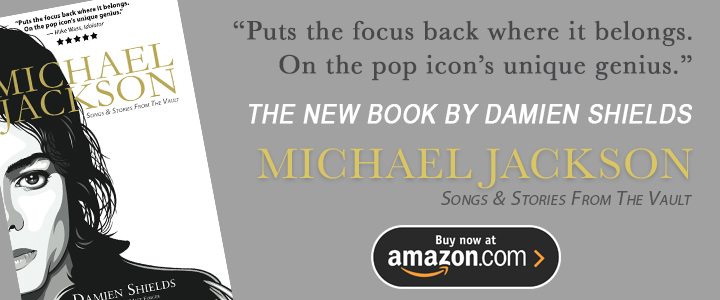

You may like
-


Producer Teddy Riley Comes Clean Regarding Fake Songs From Posthumous Michael Jackson Album
-
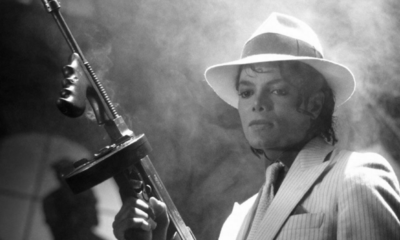

‘Blue Gangsta’ and Michael Jackson’s Fascination with America’s 20th Century Underbelly
-
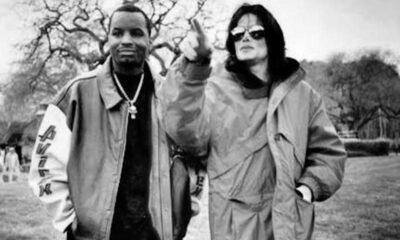

Michael Jackson Meets America in Invincible Album Outtake ‘A Place With No Name’
-
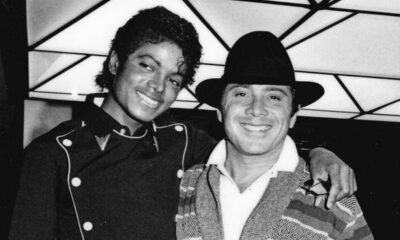

Love Never Felt So Good and Michael Jackson’s Work with Paul Anka
-
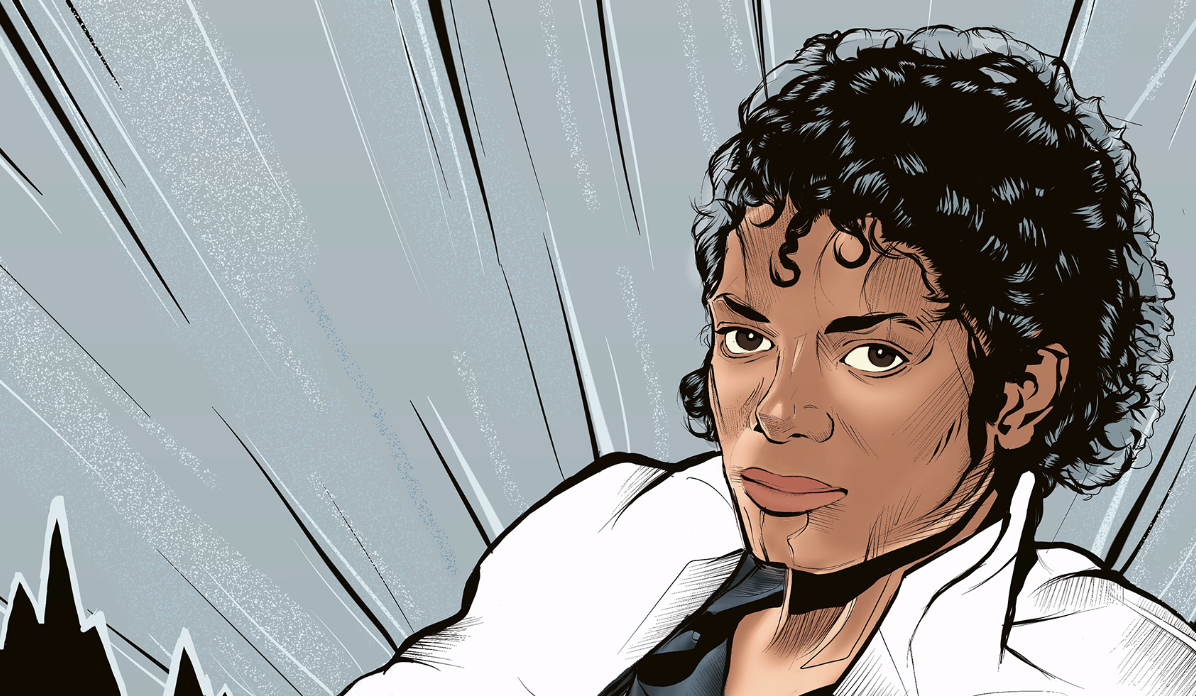

The Genesis of Thriller – A Michael Jackson Podcast Documentary
-
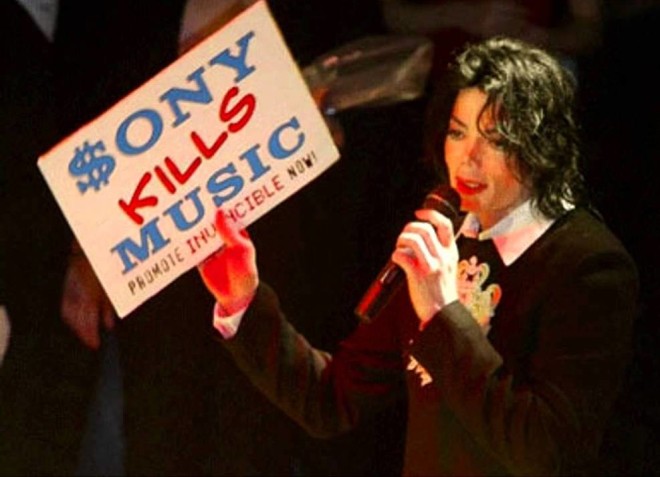

BREAKING: Court Rules Sony Music Can Sell Fake Songs Under Michael Jackson’s Name
17 Comments
Leave a Reply
Cancel reply
Leave a Reply
Cascio Tracks
First Amendment Coalition to Support Sony and the Jackson Estate in Fake Songs Lawsuit
Published
3 years agoon
February 9, 2021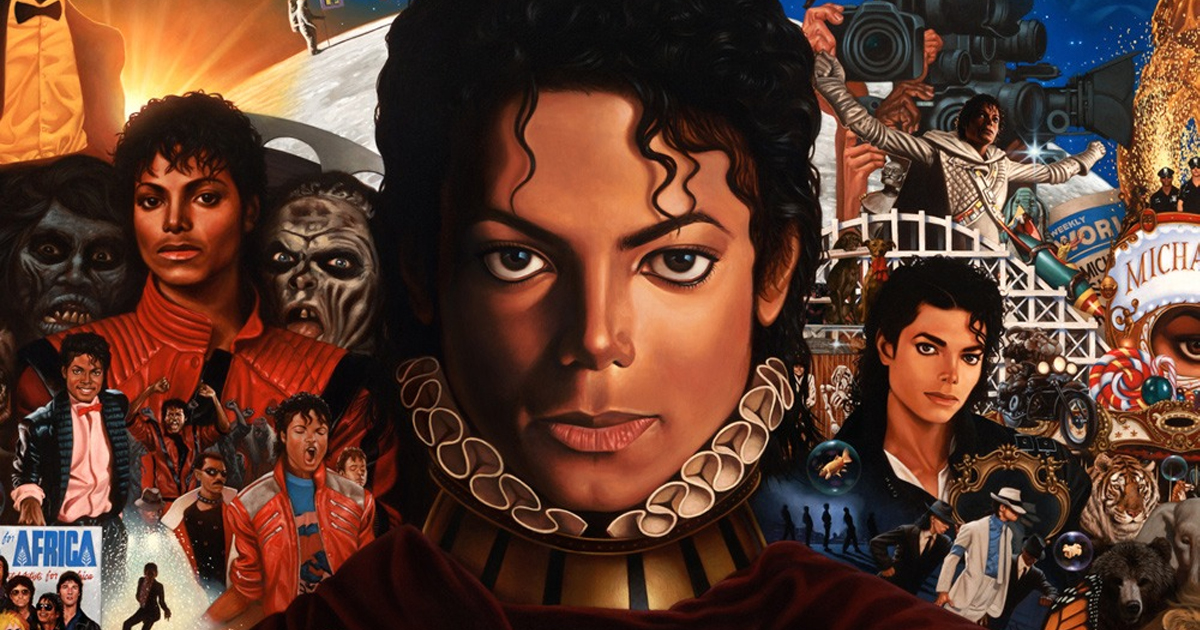
There has been yet another twist in the class action lawsuit filed by Californian consumer Vera Serova against Sony Music and the Estate of Michael Jackson regarding three allegedly fake songs commercially released on the 2010 Michael album.
In documents filed with the California Supreme Court yesterday, an organisation called The First Amendment Coalition has requested permission to file an amicus brief in support of Sony and the Estate’s purported constitutional right to sell fake songs as authentic Michael Jackson material.
FAC’s request comes after four separate amici were filed in support of plaintiff Serova by several consumer protection groups along with the California Attorney General’s Office.
All previously filed briefs support Serova’s assertion that this is a straightforward case of false advertising, and that billion-dollar corporations should not be able to commercially label fake art as authentic.
They also assert that by filing an anti-SLAPP motion against Serova, Sony and the Estate misappropriated a statute which is supposed to protect the general public against the limitless resources of wealthy corporations, and to prevent those corporations from intimidating the public into abandoning legal action against them.
Nine consumer protection organisations stated in a joint filing that Sony and the Estate have misused the anti-SLAPP statute to achieve the exact opposite of its intended purpose.
But according to documents filed yesterday, The First Amendment Coalition believes that if the Supreme Court rules in plaintiff Serova’s favour, and if a precedent is set that Sony and the Estate cannot sell fake songs as authentic Jackson material, it could have “significant implications for many different First Amendment contexts beyond the particular circumstances of this case.”
In this case, Sony asserts that they should not be held accountable for the statements made on the Michael album cover and in their television commercial, because those statements were “noncommercial” in nature. Rather, they argue, those statements are merely their contribution to the ongoing public debate about whether the vocals on three of the songs were authentic or fake, and that this makes it free speech under the First Amendment.
FAC has indicated that they will stand with Sony on this matter.
According to the mission statement published on their website, FAC is a nonprofit public interest organisation dedicated to “advancing free speech” and “public participation in civic affairs.”
By definition, public participation in civic affairs is a process in which members of society take collective action to address issues of public concern.
This begs the question: Is the definition of FAC’s mission more appropriately applied to a multi-billion dollar corporation’s purported right to claim that a commercial product is legit, when in fact it is fake? Or to a member of the public who seeks to take collective action to address the issue of that multi-billion dollar corporation falsely advertising that same product to millions of unwitting consumers?
Despite Sony and the Estate’s best efforts to stop her, the plaintiff in this case (Miss Serova) is a member of society who is attempting to take collective action (by filing a class action lawsuit) to address an issue of public concern (that a corporation may be defrauding consumers).
Moreover, FAC’s mission statement also claims to advocate for a “more open and accountable government” and “the people’s right to know”.
It should be noted that the Californian government is in fact advocating for openness and accountability and for the public’s right to know in this case – on behalf of the plaintiff, against the billion-dollar corporation that has conceded in its legal arguments to have ripped her off.
For the purposes of this proceeding, defendants Sony and the Estate have stipulated that the songs in question are indeed fake. And while their exact arguments aren’t due to be filed with the court until March 10, 2021, in the context of the defendants’ concessions, FAC could, in theory, be perceived to be advocating in favour of fraudulent representation of forged art, rather than for openness and accountability and the people’s right to know.
In a press release issued on January 29, 2021, the California Attorney General said:
“Products must deliver on their claims. If someone buys an album from a recording artist, they should expect that the songs on the album were made by that artist unless noted otherwise… We must hold companies accountable to stand by their products. Companies have a First Amendment right to communicate, but their claims must be informed and accurate.”
More to come when FAC files their amicus brief.
A podcast series called Faking Michael is in the works, detailing a decade-long investigation of this case. You can subscribe to Faking Michael on Apple Podcasts, Spotify and YouTube.
Damien Shields is the author of the book Michael Jackson: Songs & Stories From The Vault examining the King of Pop’s creative process, and the producer of the podcast The Genesis of Thriller which takes you inside the recording studio as Jackson and his team create the biggest selling album in music history.

Cascio Tracks
Californian Government Joins Fraud Lawsuit Against Sony Music and Jackson Estate
Published
3 years agoon
January 30, 2021
The California state government has officially joined a class action lawsuit against Michael Jackson’s estate and record company.
In a press release issued yesterday, the state’s Attorney General, Xavier Becerra, accuses Sony of “shirking responsibility” for making “false and misleading claims” about a posthumously released Michael Jackson album, and then declaring ignorance of their misrepresentation.
The Attorney General also filed an amicus brief with the California Supreme Court, urging them to intervene in the case of Serova vs Sony Music Entertainment, et al., for fear that “broad, destabilising consequences for well-established false advertising principles,” could be felt if it did not take action and rectify a problematic Appeals Court decision in the case.
The lawsuit at the centre of the amicus brief was filed almost 7 years ago. The suit alleges that Sony Music and the Jackson Estate misled consumers when they commercially released the Michael album, comprising 10 tracks, in December 2010.
The plaintiff in the case, Vera Serova, insists that three of the 10 tracks on Michael are part of an elaborate artistic fraud masterminded by co-defendants Eddie Cascio and James Porte, who sold the tracks to Jackson’s Estate for millions of dollars after the superstar’s death.
Serova alleges that those three tracks, known as the Cascio tracks, are fakes sung by an impostor. And she’s not alone.
Months before the album was released, members of the Jackson family warned Sony and the Estate regarding the Cascio tracks, insisting that they were fakes and should not be released. One of the Estate’s co-executors, John McClain, agreed with the Jackson family.
In response, Sony issued a press release stating that they had “complete confidence in the results of their extensive research” that the vocals were authentic. The company then released the album, including three Cascio tracks, against the family’s wishes.
Sony even went as far as to explicitly inscribe on the album cover that the vocals on all the album’s tracks were “performed by Michael Jackson.”
But despite Sony’s repeated assurances that the vocals were legit, when Jackson’s fans got their hands on the album and heard the Cascio tracks for themselves, a huge controversy ensued. Thousands upon thousands of fans around the world instantly rejected them as fakes.
Ironically, this very controversy – which Sony itself created by releasing the Cascio tracks – is one of the many points the company has since tried to raise as a get-out-of-jail-free card.
Sony says that because thousands of people were questioning the authenticity of the vocals, the company’s claim that Jackson sang them was not commercial in nature, but merely their non-commercial contribution to the ongoing authenticity debate.
But the Attorney General argues that Sony’s logic is absurd. The fact that there were questions over the vocals, the AG says, only increased Sony’s need be sure that the songs were indeed authentic if they intended on claiming they were:
“Questions about the authenticity of songs allegedly recorded by Michael Jackson shortly before his death naturally led to significant interest and debate among fans, members of the media, and the public more generally. That level of interest made it all the more important for Sony to provide accurate information about the songs to consumers.”
The AG added: “It would seriously frustrate the State’s interest in combating false or misleading advertising to immunise a seller from liability merely because its claims bear some relation to a matter of public interest or a public figure.”
Moreover, the Attorney General completely rejects Sony’s claims that their speech wasn’t commercial in nature.
Because the album cover explicitly stated that the songs were “performed by Michael Jackson,” Sony was bound to that statement as being the truth, and could be held liable under consumer protection laws if it were proven otherwise.
“A seller’s description of a product on a label or in an advertisement is a classic form of commercial speech. Thus, assuming Serova’s allegations are true, application of California’s false advertising statutes fully comports with the First Amendment.”
In the press release issued yesterday to alert the media of the California state government’s support of Serova’s lawsuit, Attorney General Becerra said:
“Products must deliver on their claims. If someone buys an album from a recording artist, they should expect that the songs on the album were made by that artist unless noted otherwise… We must hold companies accountable to stand by their products. Companies have a First Amendment right to communicate, but their claims must be informed and accurate.”
Sometime in mid-February the Los Angeles City Attorney’s Office is due to join the California Attorney General and the nine other consumer protection groups already supporting Serova’s case. No amicus brief has been filed in support of Sony or the Jackson Estate.
A date for the oral hearing of these briefs is yet to be set.
A podcast series called Faking Michael is in the works, detailing a decade-long investigation of this case. You can subscribe to Faking Michael on Apple Podcasts, Spotify and YouTube.
Damien Shields is the author of the book Michael Jackson: Songs & Stories From The Vault examining the King of Pop’s creative process, and the producer of the podcast The Genesis of Thriller which takes you inside the recording studio as Jackson and his team create the biggest selling album in music history.

Cascio Tracks
Fake Michael Jackson Songs Lawsuit Boosted by Support from Consumer Protection Groups
Published
4 years agoon
December 14, 2020
A legal quest for justice over a posthumous Michael Jackson album including 3 allegedly-fake songs has received a serendipitous boost on the 10th anniversary of the album’s release.
On Friday, December 11, 2020, the Berkeley Center for Consumer Law and Economic Justice filed an amicus curiae brief with the California Supreme Court in support of plaintiff Vera Serova’s ongoing class action consumer fraud lawsuit against Sony Music and the Estate of Michael Jackson.
The powerfully-worded brief was co-signed by 8 additional consumer protection organisations. Click here to read it in full.
Serova’s lawsuit, filed in 2014, alleges that Sony and the Estate misled her and millions of consumers when they commercially released the Michael album on December 14, 2010 – exactly ten years ago today.
The lawsuit alleges that three songs on the album are forgeries sung by an impostor vocalist, and that Sony and the Estate falsely advertised those songs to consumers as authentic Jackson material.
The three songs at the centre of the lawsuit – Breaking News, Monster and Keep Your Head Up – were originally co-written and produced by Eddie Cascio and James Porte, who are co-defendants in the fraud component of the case.
The consumer protection organisations wrote in their joint filing on Friday that Serova’s is a “straightforward case of deceptive advertising.”
Yet the case has been in legal limbo for more than four years.
Back in 2016, Sony and the Estate filed an anti-SLAPP motion against Serova, claiming that her lawsuit was a ‘strategic lawsuit against public participation’ (SLAPP) intended to deny the billion-dollar corporations their purported constitutional right to sell fake songs as authentic Jackson material.
For the purposes of their legal arguments, Sony and the Estate conceded that Jackson was not the singer of the three songs in question. To be clear, this was not an outright admission that Jackson was not singing – after 6 years in court, that issue hasn’t even been addressed yet.
Rather, their concession was made in order to prevent Serova from presenting evidence that the songs are fakes. Under normal circumstances, Serova would have been required to demonstrate that her case wasn’t a shakedown, and that she could substantiate her claims with supporting evidence.
But Sony and the Estate said that it didn’t matter if they were fake, arguing that the law allows them to lie to consumers regardless.
Their argument centres around their assertion that the statements made as part of the album’s promotional material – including on the album cover and in a TV commercial – are not commercial in nature. Yes, they’re arguing that the speech in a commercial isn’t commercial speech.
“If we ripped people off and it’s noncommercial speech, they lose under the statutes,” said Sony lawyer Zia Modabber in court. “That is just the law.”
In August 2018, the corporations succeeded in their bid to be dismissed from the case. Serova fought back, petitioning the California Supreme Court to intervene, which they did. But when the case was sent back to the Appeals Court in January 2020, Sony and the Estate were yet again dismissed.
Shockingly, the Appeals Court ruled that Sony and the Estate should be allowed to lie to consumers by selling fake songs as authentic Jackson material. And so Serova petitioned the California Supreme Court a second time, seeking a review of the Appeals Court’s bizarre ruling.
As reported here in April, the Supreme Court found that the Appeals Court’s ruling was legally problematic and granted Serova’s petition for review.
In their filing on Friday, the consumer protection organisations supporting Serova’s case took aim at Sony and the Estate’s application of the anti-SLAPP statute, writing that it “does not provide a get-out-of-jail-free card to forgers.”
Under the stipulation governing this proceeding, Sony’s promotion of Michael plainly violates California’s statutes protecting consumers from false and misleading advertising. Sony marketed Michael as “a brand new album from the greatest artist of all time,” with “9 previously unreleased vocal tracks performed by Michael Jackson.” Because, as the parties have agreed for purposes of this appeal, three of the nine songs were not sung by Michael Jackson, Sony has made advertising statements that were untrue and misleading and has therefore violated California’s basic consumer protection laws.
Amicus curiae brief, Berkeley Center for Consumer Law and Economic Justice et al., December 11, 2020.
The anti-SLAPP statute is intended to protect David from Goliath – to shield the general public against the limitless funds and resources of wealthy corporations, and to prevent those corporations from intimidating the public into abandoning legal action against them.
The consumer protection organisations state in their filing that Sony and the Estate have misused the anti-SLAPP statute to achieve the exact opposite of its intended purpose:
What the present proceeding entails is the misuse of the anti-SLAPP statute by a well-funded corporation to try to silence individual consumer claims arising from what are conceded to be, for purposes of this appeal, the corporation’s misleading commercial statements. In other words, this action embodies precisely the reverse of what the anti-SLAPP statute is intended to accomplish.
The consumer protection organisations concluded their 47-page filing with the following:
The anti-SLAPP statute must not be misused to undermine California’s consumer protection laws. When Sony promoted Michael, it engaged in misleading or deceptive advertising. Sony has no free speech right to deceive consumers. Ms. Serova’s claim for misleading advertising is not a “strategic lawsuit against public participation.” To the contrary: it is a straightforward deceptive advertising action brought to vindicate precisely the individual rights that both California’s consumer protection laws and its anti-SLAPP statute are designed to protect.
The California Attorney General’s Office has also stepped in, requesting an extension to file their own amicus brief in support of Serova.
This means that when the California Supreme Court hears Serova’s case sometime next year, she will not only have the support of at least 9 independent consumer protection organisations, but also the backing of the California state government.
UPDATE: The Los Angeles City Attorney’s office has also joined the chorus of support behind Serova’s case, formally requesting an extension to file an amicus brief on December 14, 2020.
Stay tuned for further updates on the case. This website will continue to provide information as it becomes available.
You can also subscribe to the upcoming Faking Michael podcast series about this matter. A release date has not yet been set, but subscribers will have episodes delivered to them when they do become available.
The trailer for Faking Michael is available on Apple Podcasts, Spotify and YouTube.
Damien Shields is the author of the book Michael Jackson: Songs & Stories From The Vault examining the King of Pop’s creative process, and the producer of the podcast The Genesis of Thriller which takes you inside the recording studio as Jackson and his team create the biggest selling album in music history.

Subscribe to Podcast
Articles


Producer Teddy Riley Comes Clean Regarding Fake Songs From Posthumous Michael Jackson Album
Legendary producer Teddy Riley has spoken out against the controversial Michael Jackson album he worked on after the pop star’s...


Huge Win for Michael Jackson Fan as Supreme Court Rejects Sony’s Free Speech Defense in “Fake” Songs Lawsuit
Two ‘get out of jail free’ cards, used by lawyers for Sony to avoid facing the music in a consumer...


Alleged Forgeries Removed From Michael Jackson’s Online Catalog After 12 Years of Protests and a Fraud Lawsuit
Three songs alleged to have been falsely attributed to Michael Jackson were abandoned by the pop star’s estate and record...

Supreme Court Judge Grills Sony Lawyer Over ‘Contradictory’ Arguments in Alleged Michael Jackson Fraud
A lawyer defending Sony Music and the Estate of Michael Jackson in a consumer fraud lawsuit has today argued that...

Court Date Set in Supreme Court Battle Over Legal Right to Sell Alleged Michael Jackson Forgeries
Sony Music and the Estate of Michael Jackson will again fight for their right to sell alleged forgeries as authentic...


Invincible, ‘Xscape’ and Michael Jackson’s Quest for Greatness
Below is a chapter from my book Michael Jackson: Songs & Stories From The Vault, revised for this article. The full book...


‘Blue Gangsta’ and Michael Jackson’s Fascination with America’s 20th Century Underbelly
Below is a chapter from my book Michael Jackson: Songs & Stories From The Vault, revised for this article. The full book...


Michael Jackson Meets America in Invincible Album Outtake ‘A Place With No Name’
Below is a chapter from my book Michael Jackson: Songs & Stories From The Vault, revised for this article. The full book...

First Amendment Coalition to Support Sony and the Jackson Estate in Fake Songs Lawsuit
There has been yet another twist in the class action lawsuit filed by Californian consumer Vera Serova against Sony Music...

Californian Government Joins Fraud Lawsuit Against Sony Music and Jackson Estate
The California state government has officially joined a class action lawsuit against Michael Jackson’s estate and record company. In a...


Steven
April 2, 2014 at 7:11 pm
The billboard is fake. lol.
Geo M
April 2, 2014 at 7:26 pm
Well done!It was really difficult to write an article like that! I totally agree with u! I believe that chicago and she was loving me are the same and Hot Fun In The Summertime will be 17th track that’s my opinion!
morinen
April 2, 2014 at 8:06 pm
Thanks for another great article, Damien. I’m excited to hear Michael’s version of “Hot Fun In The Summertime” if it really is the mystery song (and looks like your are right in this). As to the other ones, I’m curious what the reviews would have said if the journalists were allowed to hear the original songs rather than remixes. The disco sound of Love Never Felt and the leap SWLM made really worries me.
AlwaysThere
April 2, 2014 at 8:21 pm
Great article.
I have no reservations that Chicago and She Was Loving Me are the same recording. Joseph Vogel is a very reputable source who has heard the album at least twice and does, in truth, know much more than any of us do. There is no way on the same album the estate would issue a song titled “Chicago” and another titled “Chicago (She Was Loving Me)”.
Additionally, on his twitter he spoke of the mysterious eighth track, calling it a “mid tempo 80s track that no one has ever heard”. Given that Chicago 1945 is an early version of Al Capone, there is no way that it could be considered mid tempo.
mksmurf
April 2, 2014 at 8:58 pm
Very sad about the track list, for me all are gone.
I wait for 13 years since Invincible album, now all hope just lost….
So sad… RIP MJ…!!! Nothing New at ALL!!!
TheresaB
April 3, 2014 at 1:44 am
I loved your article. Although speculative, it is backed with some serious research and knowledge. I really like how you included the billboard, the Xscape Teaser, and your discussion of the cover. I too like the cover art. After reading MJWN’s interview with the cover artist today, his explanation of the cover and what it represents makes me like it even more.
They are all great songs but your paragraph on #5 Do You Know Where Your Children Are completely says it all. That song is one of my favorites too. As one of those hard core fans, I have heard all of these leaked songs but I am very glad that they are being released. I am really excited about this release and it seems the world is too. Go Michael!!
Smelly's World
April 3, 2014 at 6:06 am
Great article. THANKS
R-Fresh
April 3, 2014 at 12:42 pm
Im feelin’ this project, all aspects including the cover, just wish it was 10 tracks – I think they have possibly chosen tracks that are well leaked on purpose to make those leaks irrelevant. The tracks are good of course but it also is protecting non leaked tunes for the future.
You know as a long time fan I’m at peace with it all these days, they will release stuff anyway and I enjoy it for what it is. There is no way he would want it released I know, and the movie “this is it” would never of been released, rehearsal footage being the biggest sin. But that movie did more good than hurt for the haters. His legacy is stronger because of it. Whilst he wasn’t giving it 100% as it was run throughs etc it proved he wasn’t bed ridden etc like the tabloids were saying… so a lot of the other crap they wrote about him can’t be true either. The real story is he is not here and he left a crap load of debt. I’m still more upset he is gone so for me these things are better than nothing.
Charles T. G. Clarke
April 3, 2014 at 5:31 pm
This article is an impressive piece of detective work. I’m so eager to hear this album, I’m even considering buying the Xperia Z2 when it comes out. Not just for the album, although I’m sick of my iPod these days and they say change is good. I want to get the Deluxe CD and I hope this release will not be an entirely digital download. It would be a shame not to get the FLAC quality and CD transfer is the only way I see doing it effectively. I lament the possibility that there may be fewer good offcuts left for the Estate to release. There may be hundreds of recordings, but enough to release as complete songs is another question entirely. With regard to a previous post by Damien, I wanted to say something about Demo’s. I have listened to most Demonstration recordings of Michael Jackson. I like most, one or two could have done with more development, in my opinion. I also like the Demo’s of fully released hits, like “In The Closet”. My point: I don’t just listen to songs for pleasure, I listen to examine the song, dissecting the intruments and vocals. Listening to the demo’s gives the student a chance to learn the changes that were made to make great songs greater.
Michael Khalsa
April 4, 2014 at 6:44 am
The ‘Exscape’ song sounds OK. Slave to the rhythm less so. I am more interested in the original recordings & will have pay the extra to hear them. Still not optimistic considering the poor quality of the Michael album.
Mike Gunn
April 5, 2014 at 10:41 pm
I am not feeling the usual excitement for the either. Will this be like the Michael album with a hughly unimaginative cheap video, low profile release that only MJ fans are aware of and where interest just fizzles away after afew weeks? There was a time when his albums where release (esp Dangerous and Bad) high profile, massive video launch, Black or White and Bad short films to launch the campaign for the two. Have Sony or the estate got a half hour tv special lined up to coincide with the launch of this album? Why not use unseen footage of MJ from his concerts as a video. I hate Hollywood Tonight type videos.
The Michael album was mastered poorly with vocals not loud enough on some songs. Even the booklet inside stank of cheap, lame this will do attitude. MJ used to have booklets with full lyrics to all his songs. Why was Bruce Swedian not involved in this project? I am so pessimistic, I hope I am wrong but all I see is maybe a couple of singles at the most, interest in the album fizzling out. Quick profits and low marketing costs. Even Bad 25 documentary was not promoted very well outside the mj fan community. The Bad 25 cd was not even available until a week after its release at my record store. Even then there was no display at the front, you had to go the MJ section and look for copies of it. Does any other fan feel this way? Where would Michael Jackson be today if it where not for the 1993 allegations?
I think fans that where around when Bad was released will understand where I am coming from. I hope my gut feeling is wrong about the album and its promotion.
Jon
April 10, 2014 at 2:39 am
Sadly without the man himself to promote it, the days of Bad- and Dangerous-scale promotions are gone. They phoned in the Michael album promotion though, and the Thriller 25 and Bad 25 promotions. Even without MJ physically present, they could do a lot better than those.
Mike Gunn
April 10, 2014 at 6:39 pm
Look at the footage from 1987 below. This is how big a deal his album releases used to be at one time.
http://www.youtube.com/watch?v=y6Dx6HZ2jLE
Phil Spinks
May 14, 2014 at 3:54 pm
I’m a huge fan of MJ and loved his music since I was 9 years old.
I love MJ’s voice in this album but much prefer the originals to the mixes.
I do feel they were over produced. It’s too techno for me and I’m sure I speak for most of the hardcore fans.
Some of the demos were the very earliest ones. I’ve heard of a much later demo which sounds like it’s a complete song, ‘Do you know where your Children are’.
It has a really sweet guitar sound running through it, reminds me of D.S. That wasn’t on the album! :o(
I’ve also heard of a much later demo to ‘Slave to the Rhythm’ too. It got a steady beat and sounds a little clubby. It runs much better with his voice.
I don’t the new mixes of these songs sound authentic!!
Why not just enhanced the demos so they’re releasable?
The original ‘A Place With No Name’ is awesome with the acoustic guitar in it.
Why re-do Xscape?
The original is was already awesome?
If you change the original too much you risk changing what MJ wanted!
I’m sorry for my negative feedback, I was just really looking forward to this album and I must say, i was disappointed.
Love never felt so good and Blue gangster are the only new songs I like.
Kind regards
Phil
ABC102
September 5, 2014 at 5:06 pm
Hey there! I just wanted to ask if you ever have any problems with hackers?
My last blog (wordpress) was hacked and I
ended up losing several weeks of hard work due to no backup.
Do you have any solutions to stop hackers? – ABC102.
Angie
November 10, 2014 at 7:53 am
‘Blue Gangster’ was also written by Michael Jackson too, not just D Freeze http://en.wikipedia.org/wiki/Blue_Gangsta
Angie
November 10, 2014 at 7:54 am
“Blue Gangsta” is a song by American recording artist Michael Jackson. The song is the 6th track of Jackson’s second posthumous album Xscape. The song was originally written,composed and produced by Jackson and Dr.Freeze during The “Invincible” album recording session in 1998. The song was re-tooled by Timbaland and Jerome “J-Roc” Harmon during the recording session in 2013-2014 of the Xscape album.